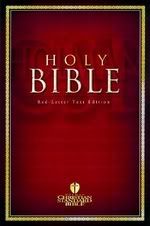That was common practices by those in the community an Joseph was a boy at the time...
Joseph spend his years on earth building up the Lord kingdom and many nights went to bed with only Johnny cake for dinner some gold digger!
He also and did his own labor in the fields etc. in between doing the work for the Lord.
As a lay church there was very little left over for a stipend where some group issues a paycheck every week!
Many of times he gave of what little he did accumulated to the pay the debts of others!
He was tar and feathered, beaten, thrown in jail on phoney charge, driven out of communities because many were jealous of when the LDS did thrive they drove them out and took over the land after the LDS left.
Those who said things about Joseph and the LDS also violated the Ten Commandments!
13 Thou shalt not kill.
15 Thou shalt not steal.
16 Thou shalt not bear false witness against thy neighbour.
17 Thou shalt not covet thy neighbour’s house, nor his ox, nor his ass, nor any thing that is thy neighbour’s
You also read the History of the Joseph to get some balance as well!

While many "experts" continue to view Joseph Smith as a controversial figure, renowned scholar (and Latter-day Saint) Richard Bushman locates Joseph in his historical and cultural context, fleshing out the many nuances of nineteenth-century American life that produced such a fertile ground for emerging religions.
While this book stands in the intersection of faith and scholarship, it does not avoid the problematic aspects of Smith's life and work, such as his practice of polygamy, his early attempts at treasure-seeking, and his later polictical aspirations.
In the end, Smith emerges as a genuine American phenomenon, a man driven by inspiration but not unaffected by his cultrual context. For anyone interested in the Mormon experience, it will be required reading for years to come.
***
From Publishers Weekly
Starred Review. How should a historian depict a man's life when that man, and his religion, remain a mystery to so many 200 years after his birth? Bushman, an emeritus professor at Columbia University and author of Joseph Smith and the Beginnings of Mormonism, greatly expands on that previous work, filling in many details of the founding prophet of The Church of Jesus Christ of Latter-day Saints, and carrying the story through to the end of Smith's life.
Many continue to view Smith as an enigmatic and controversial figure. Bushman locates him in his historical and cultural context, fleshing out the many nuances of 19th-century American life that produced such a fertile ground for emerging religions. The author, a practicing Mormon, is aware that his book stands in the intersection of faith and scholarship, but does not avoid the problematic aspects of Smith's life and work, such as his practice of polygamy, his early attempts at treasure-seeking and his later political aspirations.
In the end, Smith emerges as a genuine American phenomenon, a man driven by inspiration but not unaffected by his cultural context.
This is a remarkable book, wonderfully readable and supported by exhaustive research. For anyone interested in the Mormon experience, it will be required reading for years to come.
